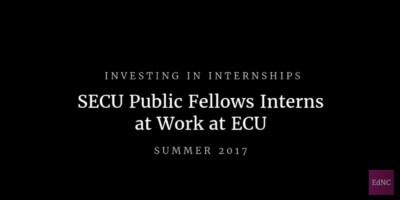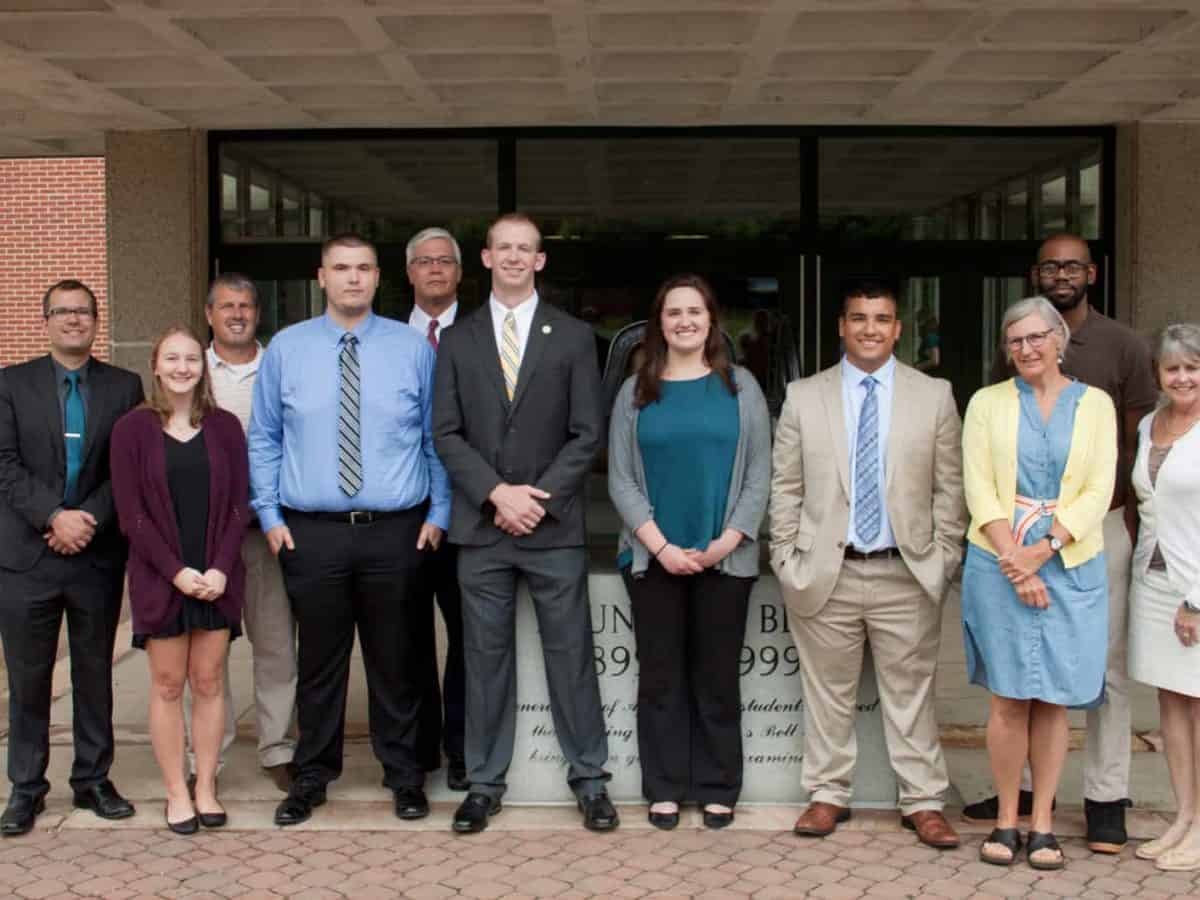

This series on internships is sponsored by the SECU Foundation.
Internships are increasingly critical for every college student to be a competitive job applicant. In a 2016 opinion column for The New York Times, president of the Ford Foundation Darren Walker writes, “America’s current internship system, in which contacts and money matter more than talent, contributes to an economy in which access and opportunity go to the people who already have the most of both.” Knowing the right people to open early doors in your career matters.
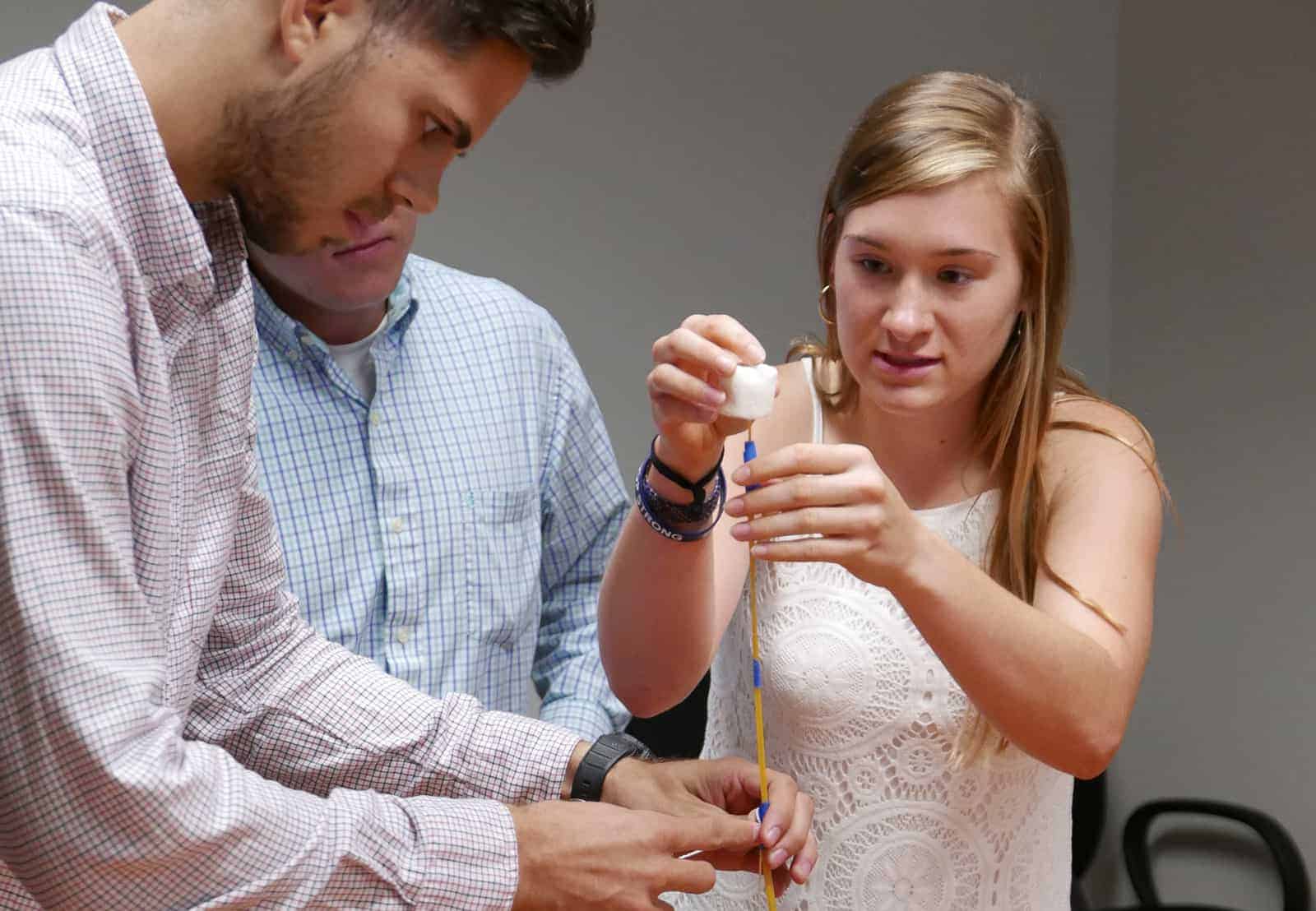

Jim Johnson, chairman of the SECU Foundation board and former director of the Fiscal Research Division for the North Carolina General Assembly, helped establish the SECU Public Fellows Internship program. Johnson understands that internships, in his words, “can perpetuate or widen inequalities.” He also knows that they are now an essential part of college. “In the last 10 to 15 years, the relationship between the classroom and the professional sphere in terminal masters programs has quickly migrated down to the undergraduate level.”
Funding internships in rural areas fits within the SECU Foundation mission “to promote local and community development by primarily funding high impact projects in the areas of housing, education, healthcare and human services.” The Foundation is fully funded by $1-a-month elective contributions by SECU members, who include public school teachers, state university employees, and public service and safety workers. “Education is a big focus of ours,” continued Johnson. “Several of our board members have a tie to education, and of our two million-plus members a significant portion work or have worked in the education sector.”
“It’s nice not have to worry about income for the summer because I’m able to just focus on my internship as much as possible.”
—Tyler Cook, ASUSince its founding in 2004, the SECU Foundation has granted $57 million in scholarships alone and nearly $1.2 million to paid internships since 2013. “We are helping to educate North Carolina’s educators and keep them in local communities,” explained SECU President Mike Lord. “This helps particularly challenged areas like northeastern North Carolina that are having trouble attracting and retaining teachers and other state employees.”
SECU Foundation Executive Director Jama Dagenhart says this program is a perfect fit for the Foundation’s philanthropic portfolio. “The Foundation puts a tremendous amount of resources into supporting education in North Carolina, and this internship program is very compatible with the scholarship programs,” said Dagenhart. “It speaks volumes on the importance of education to our members, and it reinforces our commitment to the state of North Carolina and its universities.”


Several of the interns I met this summer could not have interned full time without the financial support of the SECU Public Fellows Internship stipend. “This is not a needs-based program,” said Dagenhart, “but creating equal opportunity is one of its central concepts.”
Matthew Lee, a criminal justice major at ASU from Ashe County, just wrapped up several weeks working at the State Bureau of Investigation in Hickory. “I went to about 10 or 12 homicide scenes this summer,” he shared. “I actually got to interview one suspect. For whatever reason, he said he wanted to talk to me because he felt like he could relate to me better. They let me interview him, and he confessed. I got to experience that — that was definitely one of the highlights.” The $5,000 stipend Lee received helped him pay for gas to get him between crime scenes and the office. It also enabled him to buy the suit he was wearing when we met.
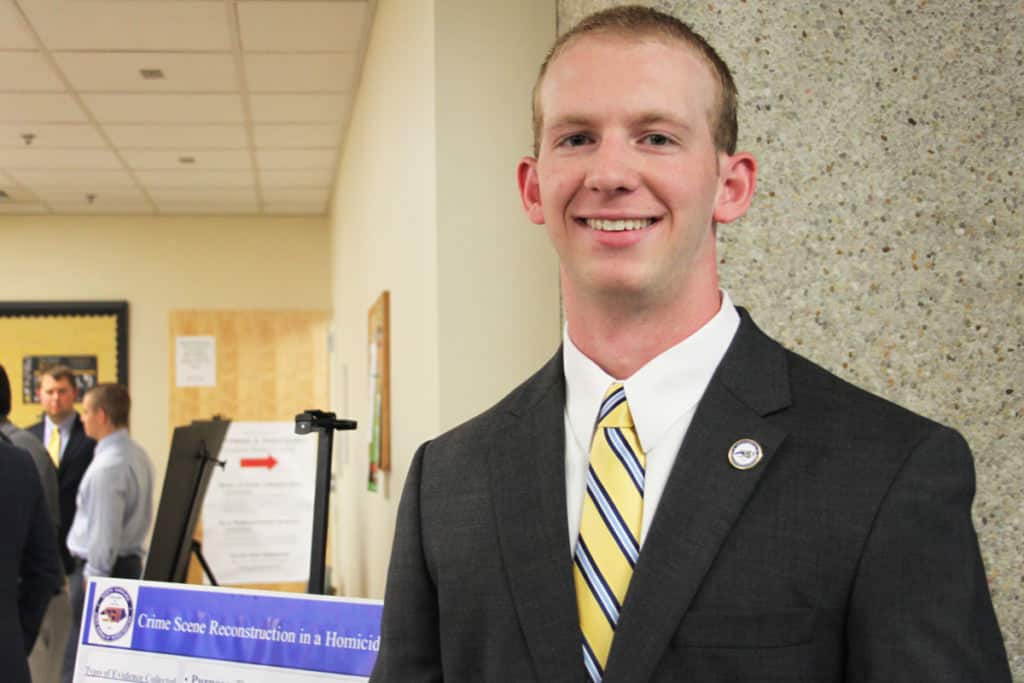

Even more importantly, however, Lee’s internship may land him a permanent position. “They posted a job about a week ago for a special agent position and I had two of my supervisors write me a recommendation,” he said. “If they do that, it guarantees you a spot in front of a review board.”
Kristain Abrams, an ASU criminal justice major from Polk County, needed the SECU Public Fellows Internship stipend to pay for gas and other living expenses while he interned in the forensics department at the Rutherford County Sheriff’s Office. He picked forensics because it was an area he knew little about, and his experience taught him a valuable lesson. “Forensics is really interesting to work for,” said Abrams, “but I don’t think I want to pursue it as a career.”
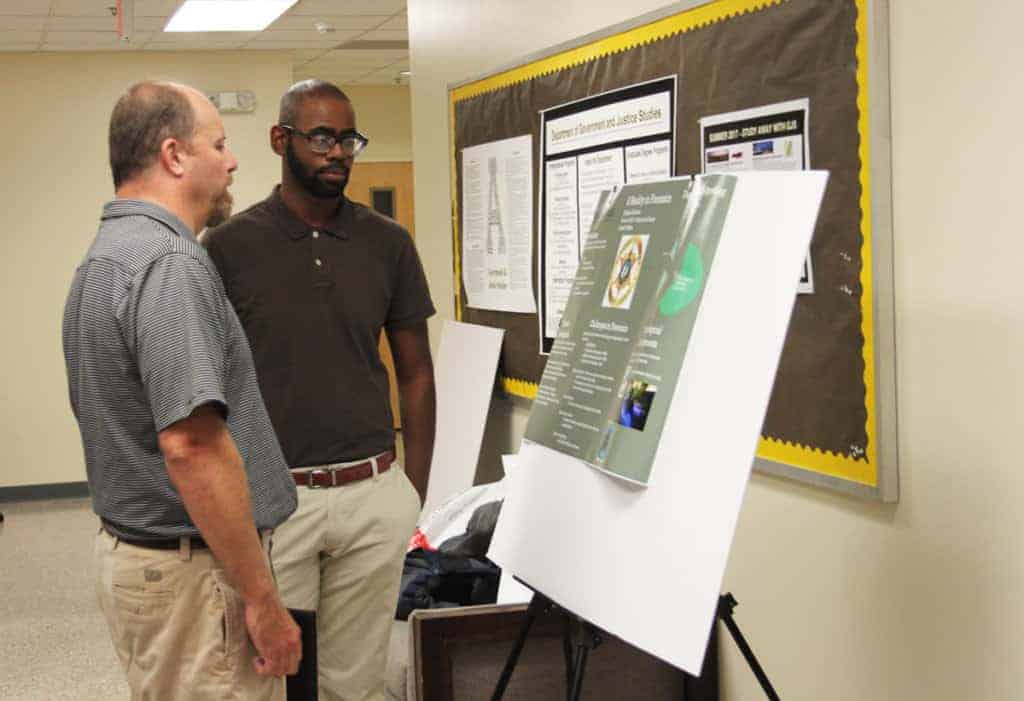

“An internship is a pretty safe chance for a student to try something out that they think they want to do with their professional life,” says Dr. Sharon Paynter, assistant vice chancellor for community engagement at East Carolina University. “It can solidify an occupational direction, or it can tell the student that they are doing the completely wrong thing — confirmation in either direction is an incredibly valuable learning experience.”
Abrams and Lee gained career lessons and widened their networks too. “It’s also social capital for many students,” shared Susan McCracken, director of career development and economic engagement for the Division of Student Affairs at ASU. “Criminal Justice or ACCESS students may be more likely to be first-generation college students or from rural areas. This opportunity validates their educational experiences, and says, ‘You can forge networks and connections that you may otherwise may not have had access to.’ These relationships provide a foundation for professional growth.”
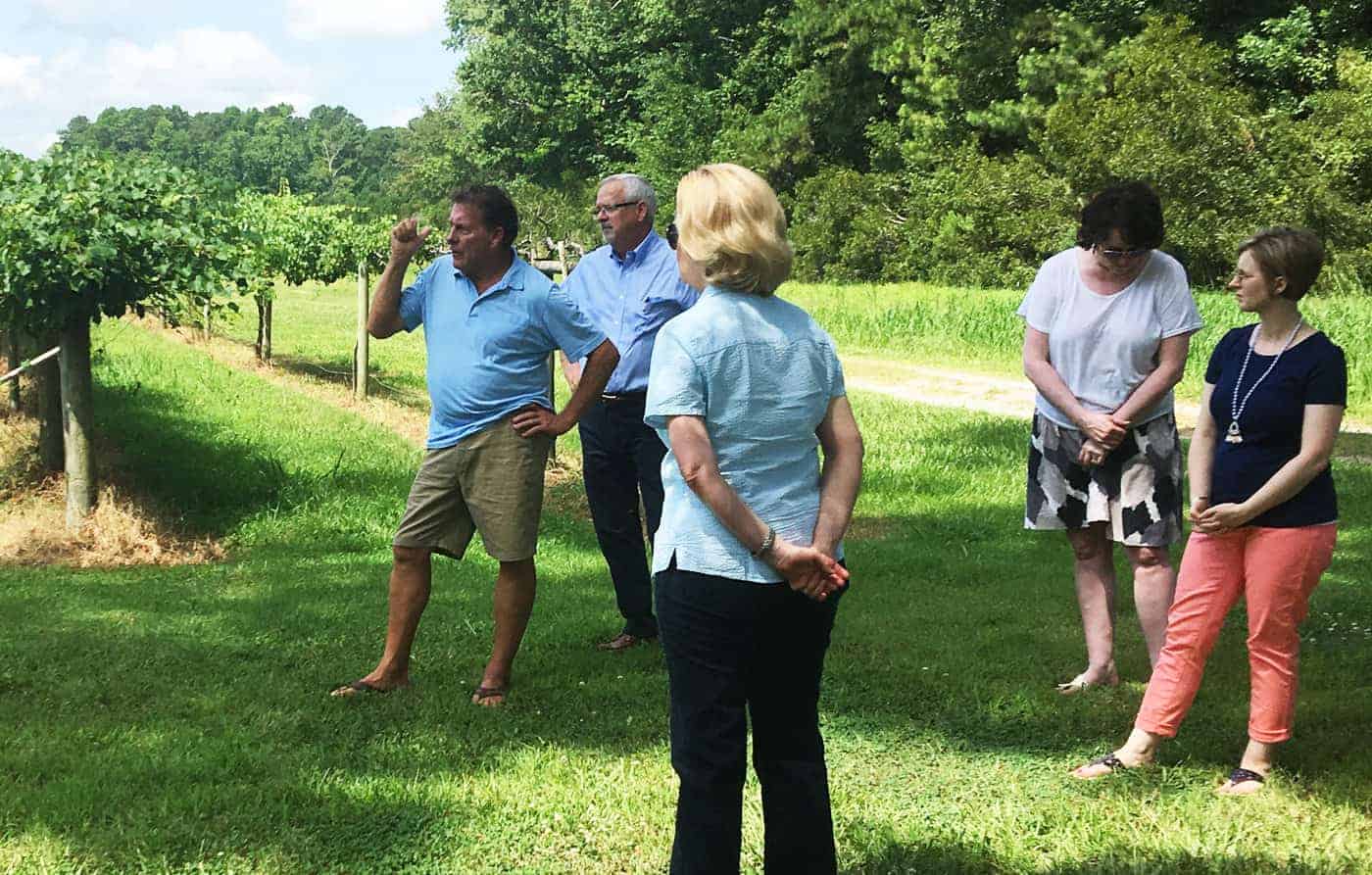

Internships are, of course, a two-way street. SECU President Mike Lord explains the foundation designed this program to have high impact. “We focused this work in communities with unmet needs, and the interns help meet those needs,” said Lord.
Johnson has experience from both sides of the intern equation — interns frequently worked at the Fiscal Research Division, and Johnson also advised graduate students on internship placement during his time at Duke’s Sanford School of Public Policy. He does not mince words in his support of paid internships: “Internships are good business and good for business. You should consider having them, and when you do have them, you should pay them.” He went on to explain that internships are also good for government, serving as a recruitment tool, and interns can help demystify and even promote organizations to their peers. “And the network is the best asset to marketing to millennials,” said Johnson.
SECU Public Fellows have made significant contributions to organizations across the state. ECU student William Zahran helped make the second year of Sylvan Heights Bird Park’s Souring Into Science camp a success — this required the commitment of a full-time intern in tiny Scotland Neck (population 2,000).
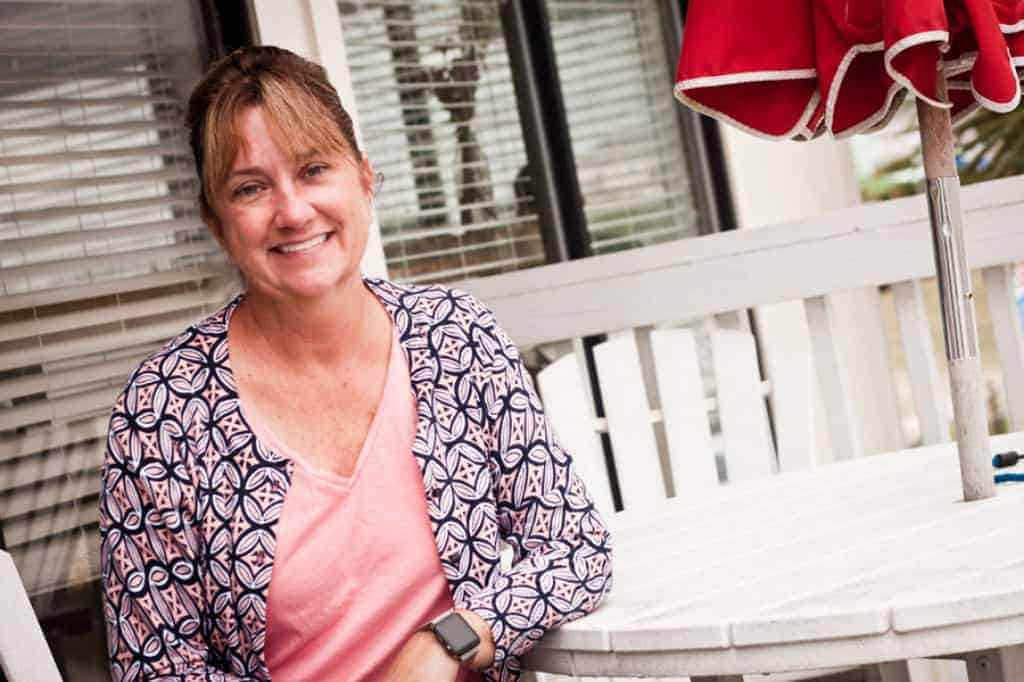

Deb Allen of the Ocean Isle Beach Sea Turtle Protection Organization (OIBSTPO) acknowledged that this volunteer-run nonprofit could never fund its interns. “This was the first year we were able to incorporate bringing an intern into all aspects of the organization,” said Allen. During her time at OIBSTPO, Jordan Boles assisted managing twenty-two turtle nests and raised the public profile of the organization. “Jordan has really helped us expand our social media,” continued Allen. “We’ve had more young people coming to us and asking about being an intern, asking how to get involved, and more people wanting to come in and volunteer.”
This summer, the SECU Foundation hosted its very first paid intern: Chandler Rowland, a graduate student at the Sanford School of Public Policy. Rowland analyzed 13 years of scholarship data, which will aid the foundation’s future decision making. “The SECU Foundation can be a beacon to the credit union as a business,” said Johnson. “We should look internally at how we have, and support, interns.”
In the immediate future, the SECU Foundation will continue to work to improve the program at its network of nine schools and establish metrics to measure impact. With so much potential for impact on the individual and community level, this program is one the Foundation hopes to continue.
Here is more information about SECU Foundation.
You can follow secu_foundation on Instagram.


